Breath has long been a way I could steady myself in anxious moments. When the pandemic hit the world, in Ireland where I live we went into full lockdown off and on for many months. There was so much to grieve in the midst of this desert pilgrimage on which we were collectively thrust. But there was also much for which I felt deeply grateful. The less I was able to go off and travel and teach, the more I fell in love with the most ordinary moments of my days.
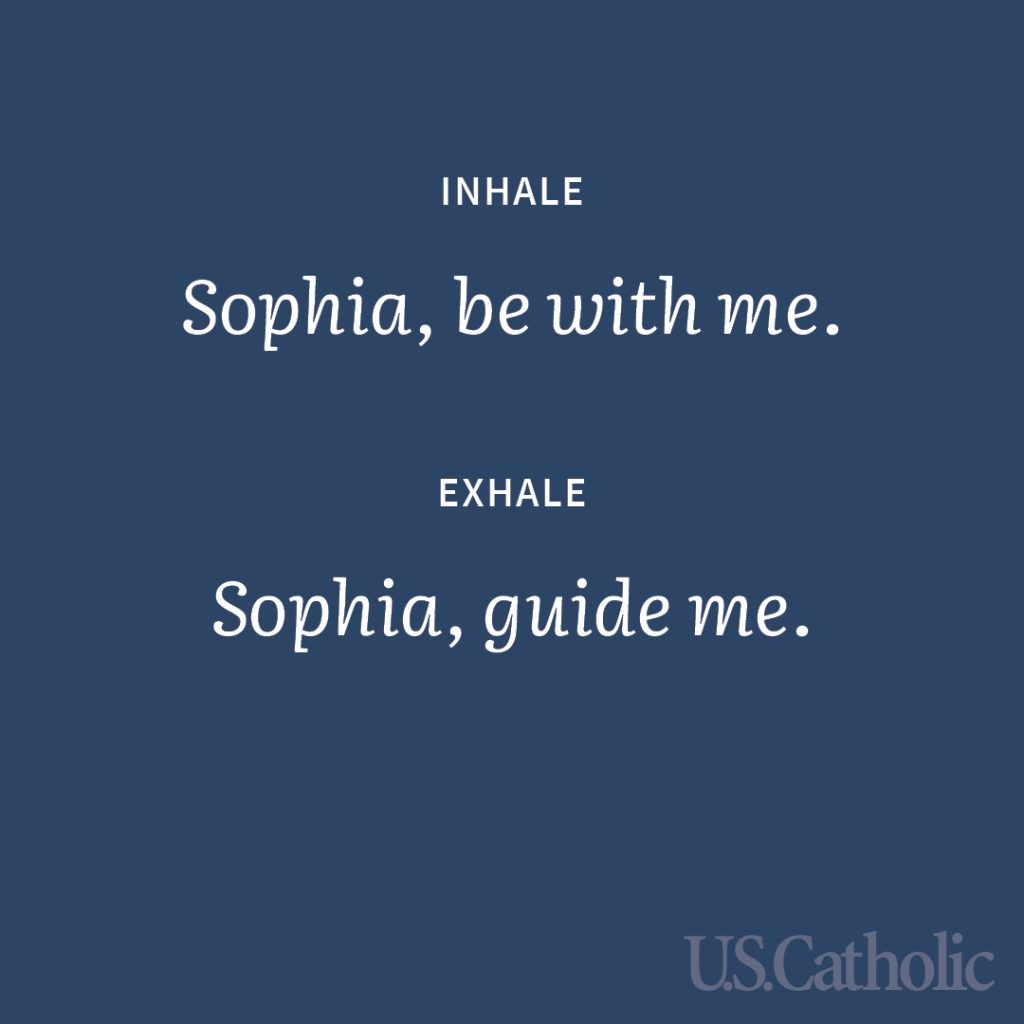
Early Christian monks went out to the desert to practice being fully present to God. They desired to cultivate their ability to “pray without ceasing,” as St. Paul writes (1 Thess. 5:17), and discovered the breath as a powerful companion. They would attach a phrase to their inhale and exhale so that with every breath they could bring themselves into deeper communion with the divine no matter what they were doing. The traditional words they used were “(inhale) Lord Jesus Christ, Son of God, (exhale) have mercy on me, a sinner,” known as the Jesus Prayer or the Prayer of the Heart.
When we bring our attention to breath, it can become a beautiful support for slowing down. To pray without ceasing means to pray while doing the dishes or the laundry, to pray while waiting for the bus or sitting in traffic, to pray in the middle of the night when we awaken filled with anxiety. While the ancient practice of breath prayers had a particular set of words attached, we can bring this practice into our modern lives and adapt the words as needed.
Prayers would find me in those quiet moments of lockdown. I’d start by simply resting with the presence of God and calling on the divine name. I was seeking the spirit of Wisdom in those days of unknowing, but any name could be prayed.
Inhale: Sophia (or Jesus, Mother, Father, Spirit), be with me.
Exhale: Sophia (or Jesus, Mother, Father, Spirit), guide me.
Let the divine name echo in the sanctuary of your heart, the place where the spark of God dwells within each of us. With each inhale invite this sacred presence to be more fully with you. With each exhale seek guidance from this divine indwelling.
One of the Eastern Orthodox teachers, St. Hesychios the Priest, wrote: “Let the name of Jesus adhere to your breath, and then you will know the blessings of stillness.” I love this image of letting the prayer adhere to your breath. Rather than forcing together word and breath, imagine the words naturally being drawn to the breath like a magnet to metal or like bees to flowers.
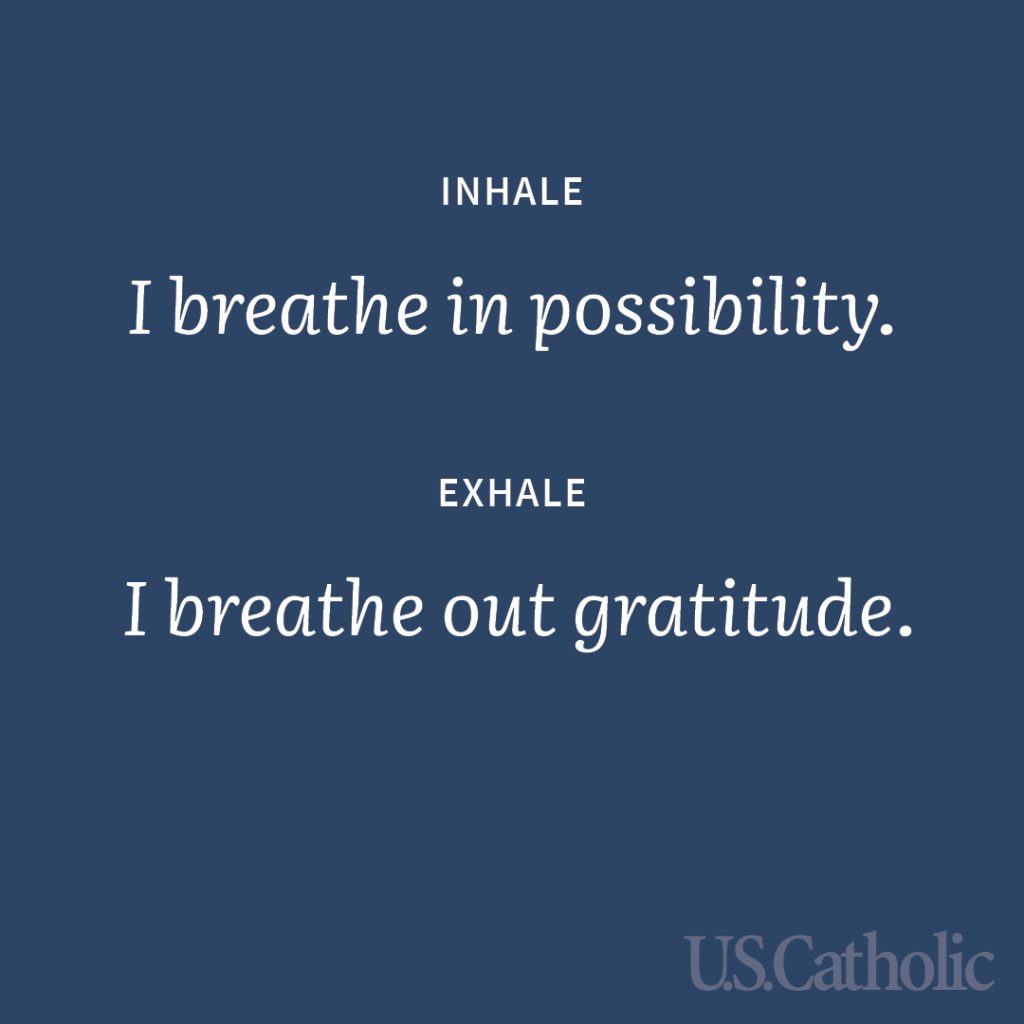
The focus is not on saying each prayer correctly or perfectly each time. Rather, it is on letting the words open your heart to a deeper intention in daily living. We work on the words, but the words work on us as well. Eventually you might discover that you are not so much reciting the prayer as the prayer is reciting you, guiding you, opening your heart.
The ancient writers of the Philokalia, an Eastern Orthodox Christian text teaching the heart of contemplation, wrote with great love about this pathway to the place of inner refuge and sanctuary.
Only through our own willingness to embrace a radical humility and vulnerability can we soften enough to allow the grace that is there to penetrate our daily awareness. Praying with the breath is a key way to do this; each inhale and exhale becomes a portal to divine presence and inner stillness.
You might begin each day with an expression of gratitude for the most basic of gifts, life itself. Awakening each morning for another day to live and love, grateful for your breath and a body that allows you to move through your day, you might pray:
Inhale: I breathe in possibility.
Exhale: I breathe out gratitude.
Notice what resting into this prayer for the first few minutes after awakening stirs in your heart. How does it shape the way you move into the day?
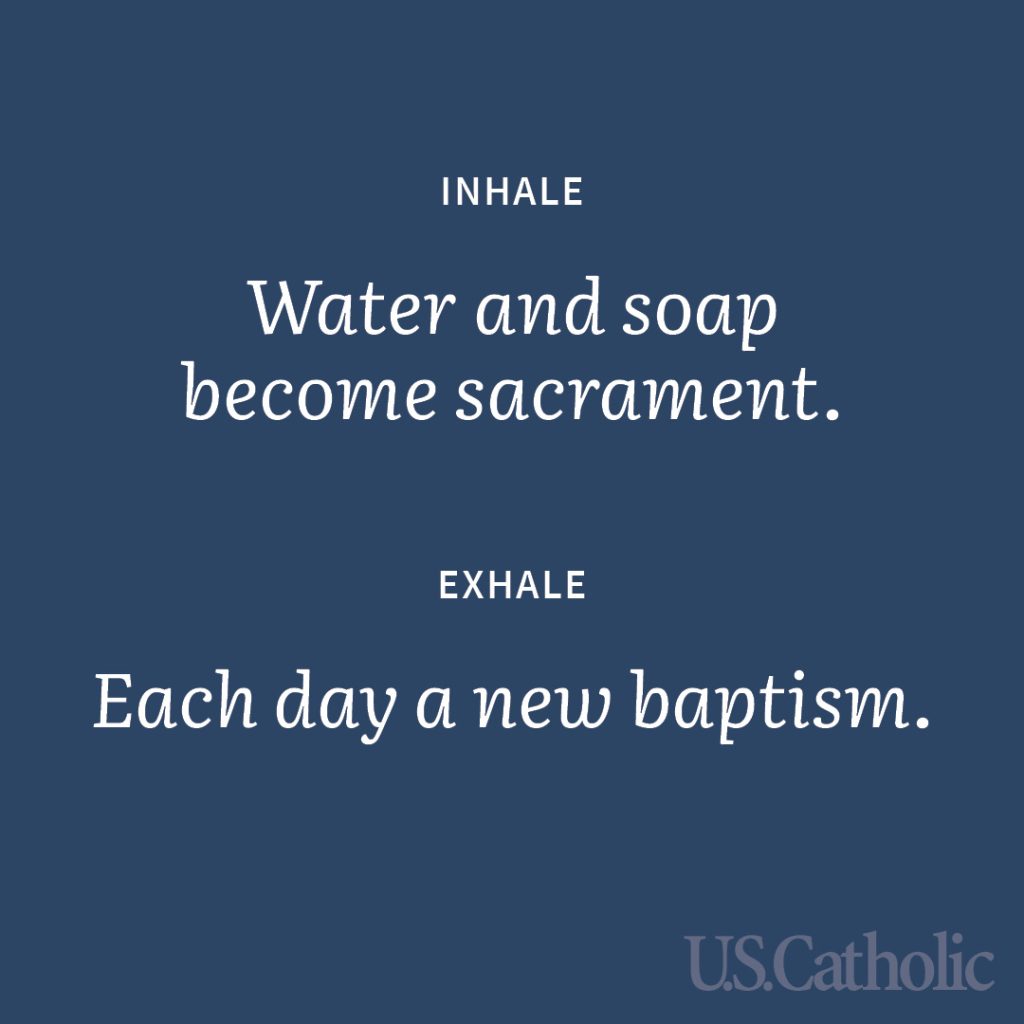
For many of us, the next step in our day is taking a shower.
Inhale: Water and soap become sacrament.
Exhale: Each day a new baptism.
You might pour some shampoo in your hand and become aware of how such simple things in life like water and soap can be gifts. As you rinse yourself clean from residue, remember the gift of baptism as a new beginning.
You can also draw on favorite scripture passages to align with your breathing as a way to bless different activities. Sometimes when I go on pilgrimage or am in a season of discernment, I pray these words I love from Jeremiah 6:16 while walking:
Inhale: Stand at the crossroads.
Exhale: Ask for the ancient paths.
Inhale: Walk in it.
Exhale: Find rest for my soul.
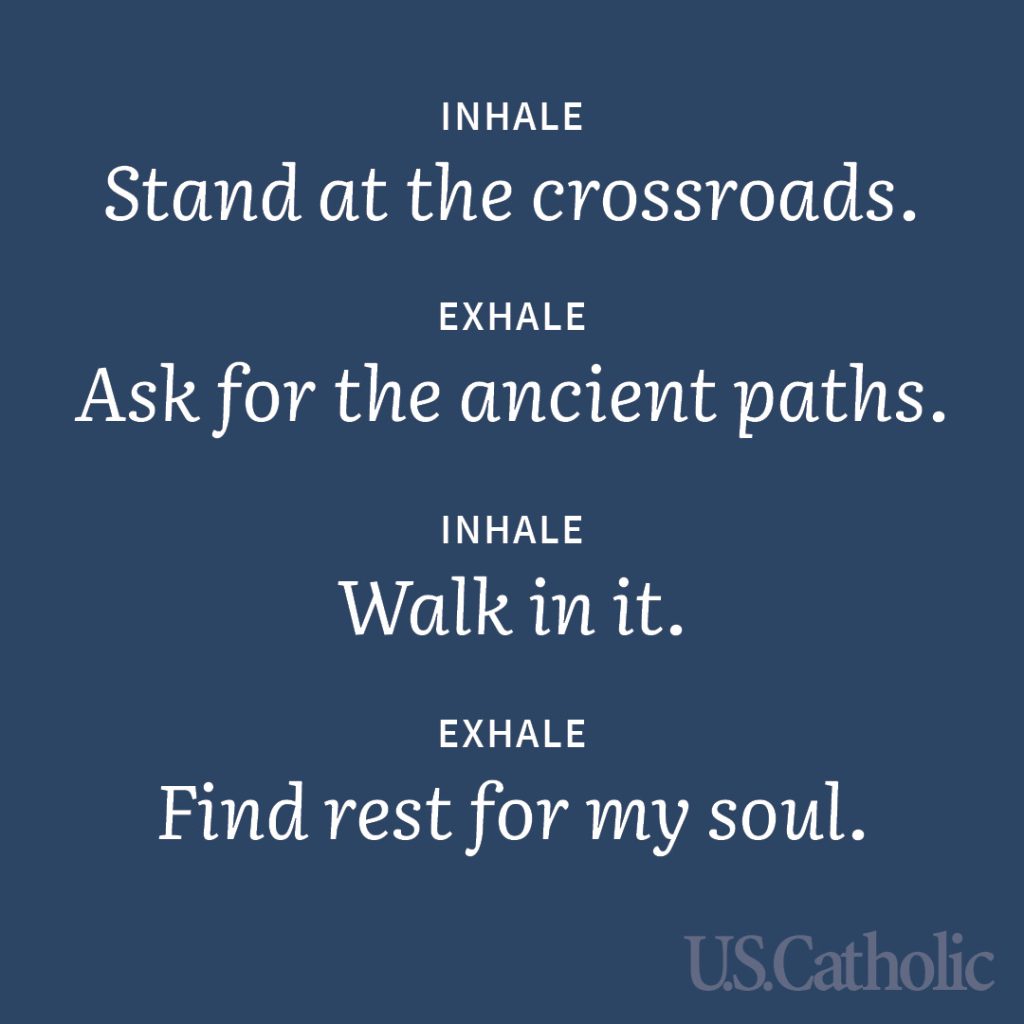
Each moment of breath helps me to deepen into the invitation of this passage. I start with standing at the crossroads, really feeling myself on a threshold. I then ask for the ancient paths, and my heart lifts to God, seeking wisdom and guidance. I then walk in it, which means to practice and commit to this way. Finally, I find rest for my soul. With that final exhale my body feels a deep release.
Consider what activities during your day you could bless with more awareness and presence. Also consider the phrases and lines from sacred texts that already inspire you, which might help you to breathe more deeply. Create them into a breath prayer that is a companion for you, drawing your gaze to God in the midst of the most ordinary moments.
This article also appears in the October 2021 issue of U.S. Catholic (Vol. 86, No. 10, pages 45-46). Click here to subscribe to the magazine.
Image: iStock/aldomurillo


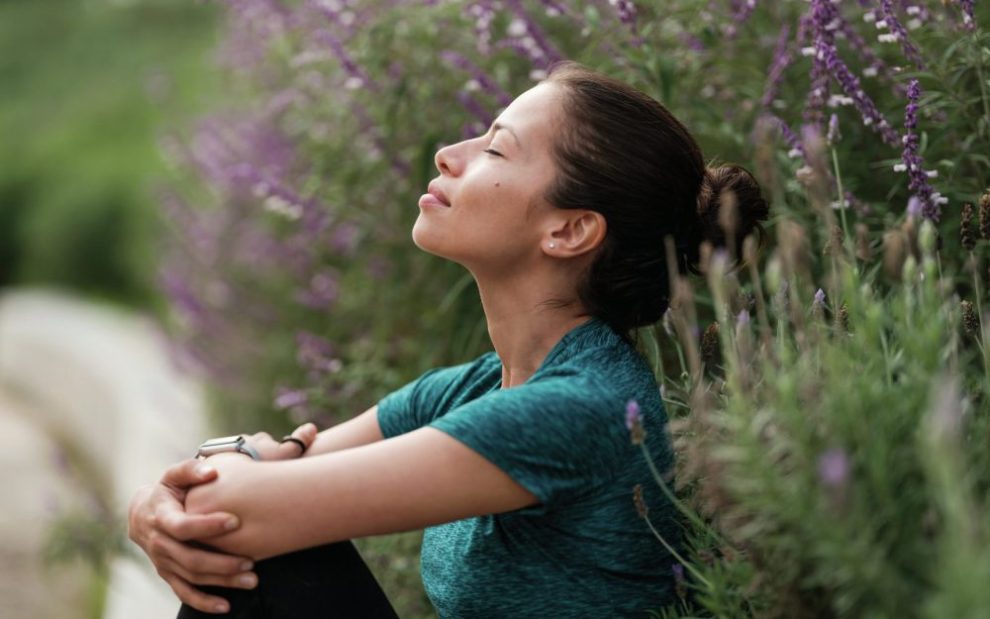










Add comment